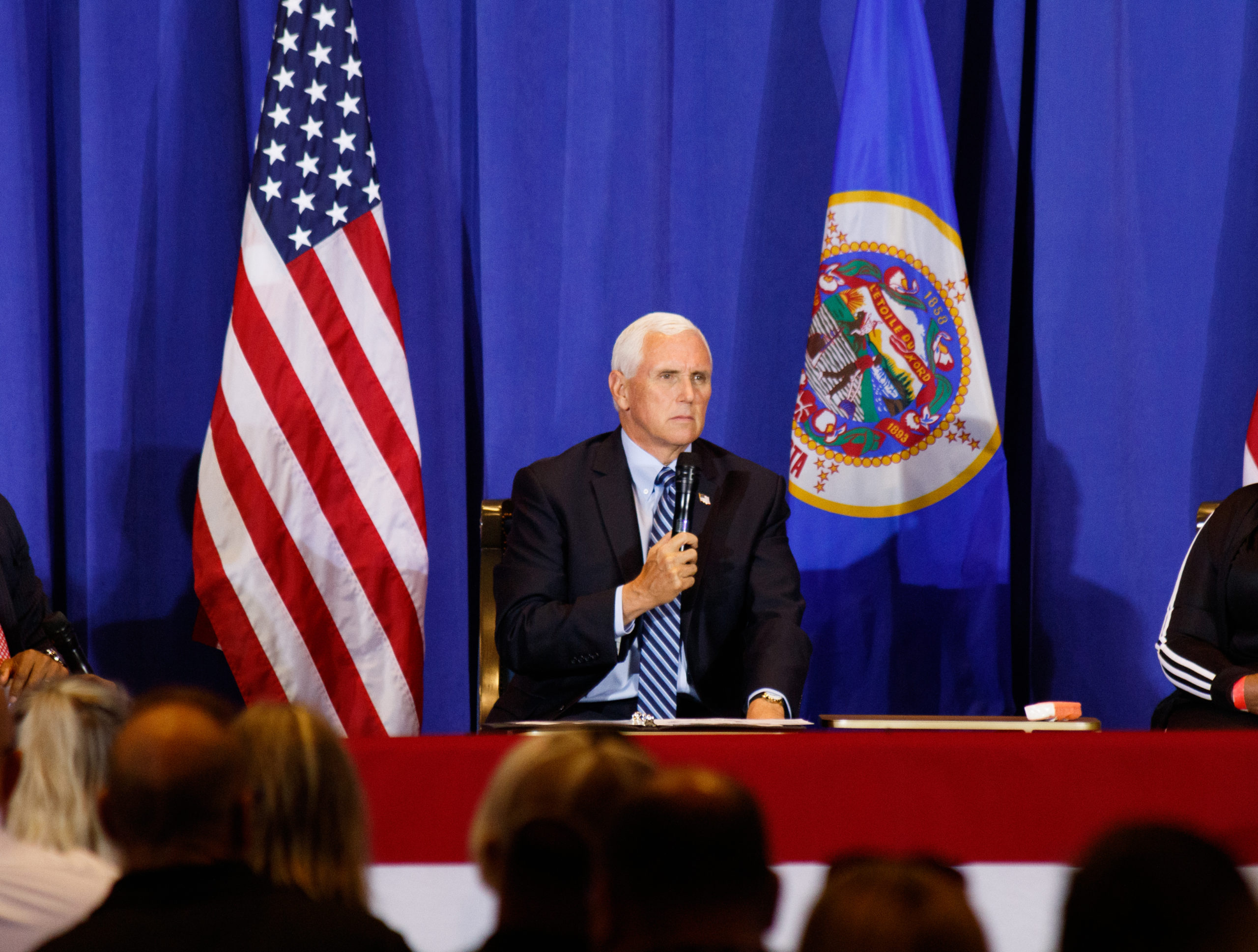The Stanford College Republicans (SCR) will host former U.S. Vice President Mike Pence with support from the Young America’s Foundation on Feb. 17 at 7 p.m. in Dinkelspiel Auditorium.
The Pence event, which SCR is calling “How to Save America from the Woke Left,” will be SCR’s first major in-person speaker event since the beginning of the COVID-19 pandemic.
The student group wants the former Vice President to “make the case for American Freedom,” wrote SCR spokesperson Stephen Sills ’22 in a statement to The Daily.
SCR’s speaker events have a history of stirring controversy on campus, and the Pence event is no exception. SCR was initially unable to secure University funding after the Undergraduate Senate (UGS) denied SCR’s request twice last fall. At the time, senators raised concerns about COVID-19 risks and the prospect of the event drawing large crowds of non-Stanford affiliates from outside of the county and state. Five senators voted ‘yes’ for funding the event while eight abstained and zero voted ‘no.’
After being denied funding, SCR filed a Constitutional Council case against the UGS. The student group alleged that the Senate discriminated against SCR’s conservative beliefs and argued that the Senate’s original vote had actually approved the funding. Ultimately, the Constitutional Council clarified the Senate’s decision, ruling that because abstentions do not count as votes, the senators’ five votes in favor of funding had actually approved the request.
The UGS co-chairs did not respond to a request for comment. Associated Students of Stanford University (ASSU) President Christian Giadolor ’22 said that the ASSU “recognizes and supports the rights of students to engage in free speech,” which includes both the right to invite speakers and the right to peaceful assembly.
University spokesperson E.J. Miranda echoed Giadolor’s sentiments on students’ right to free speech.
“Stanford values free expression and divergent viewpoints,” Miranda wrote in an email. “We are committed to ensuring that differing ideas and opinions can be voiced in an atmosphere of thoughtful and respectful engagement.”
Some students, however, believe that hosting Pence will do more harm than good for the student body.
“This can’t just be about fairness and giving equal platform to ‘both perspectives,’” said Chaidie Petris ’24. “This is about the collective trauma of students negatively affected by the previous words and actions of Mike Pence.”
Petris added that if the ASSU is able to provide funding for SCR to host Pence, then the University should “be making a point to pour equal and greater funds into conversation, resources and organizations associated with the groups Pence has targeted at the same time.”
This is not the first time that SCR has run into funding obstacles from student legislatures — in 2018, the group struggled to secure University funding for a speaker event with Dinesh D’souza, a conservative political commentator and filmmaker. Although SCR was ultimately able to host D’Souza, students voiced concerns about the event, citing D’souza’s pattern of anti-Semitic rhetoric.
The following academic year, SCR hosted conservative political commentator and media host Ben Shapiro. Protestors gathered outside of the event, and numerous student groups denounced both the event and the University’s decision to permit it.
While it remains unclear whether students will organize in opposition at the Pence speaker event, Miranda wrote that the University is “taking all appropriate safety measures.” Stanford University Department of Public Safety spokesperson Bill Larson declined to share any plans or preparations for the speaker event, citing security concerns.
While members of SCR discussed how to confront and de-escalate protests with the Office of Student Engagement in a Feb. 2 meeting, Sills said he is not concerned about the possibility of protests at the Pence event.
“The protestors are allowed to screech and shout all they want,” he said.
